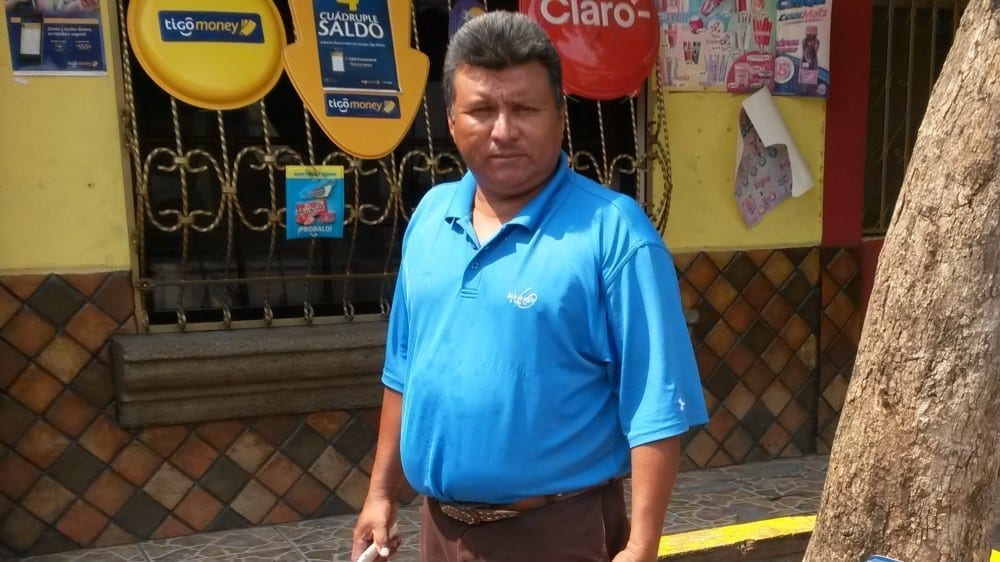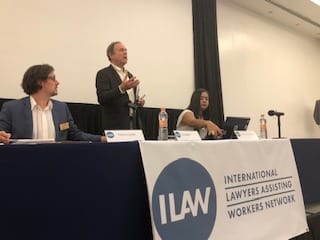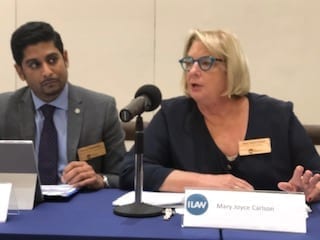The International Trade Union Confederation (ITUC) and the Network Against Anti-Union Violence in Honduras are urging the government to drop all charges against Moisés Sánchez, safeguard his protection as a human rights defender under threat, and ensure he can freely...
DRIVING CHANGE WITH A COMMUNITY OF WORKER RIGHTS LAWYERS
Through our Rule of Law Department, we partner with workers and unions around the world to ensure that all working people have their rights protected under domestic, regional and international law, have access to effective legal remedies at all levels if those rights are violated and have essential legal tools they need at the bargaining table.
Workers face significant challenges to overcoming systemic obstacles to exercise their rights, to access labor justice and to hold governments or corporations accountable in their workplaces and throughout their global supply chains.
By connecting workers and unions with lawyers from our International Lawyers Assisting Workers (ILAW) Network, we are able to harness both worker power and legal support where needed to create enabling environments and ensure workers are able to fully exercise their rights.
In South Africa, we supported constitutional litigation to ensure domestic workers have access to the national workers compensation fund. In Bangladesh, our lawyers supported workers in challenging the use of false criminal charges to dismiss and silence workers in garment factories. In the Americas, we supported efforts in regional human rights courts to hold governments accountable for anti-union violence.
THE ILAW NETWORK
The ILAW Network is a public service project led by our Rule of Law staff made up of more than 1,300 pro-worker lawyers in 96 countries, primarily from the Global South. It is the largest membership organization of worker and labor rights lawyers in the world.

The ILAW Network lawyers work together to develop creative solutions to promote workers’ rights globally—through campaigns, policy analysis, litigation and legislation.
From engaging with major fashion brands and suppliers to end gender-based violence and harassment in garment factories to suing major technology companies to secure labor rights on digital platforms, the ILAW Network holds governments and corporations accountable.
Work is driven with an explicit intersectional approach that incorporates three areas of legal tools:
STRATEGIC LITIGATION
Launched in 2022, the ILAW Network’s Strategic Litigation Fund makes modest grants to ILAW lawyer members to support impact litigation to defend legal principles and protect worker rights as human rights.
The Strategic Litigation Fund is the only dedicated financial resource for strategic litigation concerning workers’ rights in the world.
The ILAW Network has awarded 24 impact grants ranging from $3,000 to $20,000 driving change in Albania, Brazil, Ecuador, Eswatini, Ethiopia, Germany, India, Kazakhstan, Kenya, Nepal, Nigeria, Pakistan, Peru, South Africa, Switzerland, and Zimbabwe.
From challenging discriminatory exclusion of domestic workers from social protection in several African countries to seeking to enforce legislation against forced labor and human trafficking in Nepal to driving transnational supply chain litigation seeking to ensure accountability of a multi-national corporations, the Strategic Litigation Fund provides much-needed resources to push for long-term system change through legal reform.
Every donation, big or small, to the Strategic Litigation Fund can make a difference.
With just $1,500 we were able to send an investigative team of worker rights lawyers to conduct interviews with the families of victims’, indigenous communities and survivors of the Brumadinho dam collapse in Brazil where over 270 people died. The testimonies gathered and findings from the investigation were instrumental in driving the litigation to hold multinational corporations that certified the dam as safe accountable. As a result, the Brazilian company agreed to pay compensation (moral damages) in the amount of $7bn to the families of the victims.
Click here to make a donation.
MOVEMENT-BUILDING: EXCHANGE, KNOWLEDGE AND LEARNING
The following resources and opportunities to build power through regional and global convenings are at the heart of creating a movement alongside workers through a uniquely equipped legal community.
- The ILAW Network is made up of 1,300 members in each region across more than 95 countries, sharing information with each other in real time through a secure member-app.
- More than 2,500 (worker rights lawyers along with workers and union leaders) received targeted multi-lingual in-person training and webinars on a variety of topics, such as the right to strike, collective bargaining, technology and the impact on workers, and international strategies to prevent wage theft from migrant workers.
- The ILAW Network also offers the Future of Labor Law Database, an online resource to discuss and co-create model laws and policies intended to be worker-centric and inclusive, containing recommended labor law legislation with direct input from ILAW members.
- ILAW members are given opportunities to connect online and in-person through various events and activities to ensure that they have opportunities to build solidarity, community and learn from each other.
ADVOCACY, LEGAL RESEARCH AND LEGAL REFORM
- The ILAW Network has filed more than 15 amicus briefs since its inception in 2019 on important labor rights cases in Colombia, Costa Rica, Ecuador, Georgia, Mexico, Peru, Thailand, Uganda, the US and the Inter-American Court of Human Rights. The full list of amicus briefs can be found here. In several cases, the courts followed the reasoning set forth in the briefs that were filed.
- The ILAW Network has also supported (positive) or combatted (regressive) labor law reform in more than 20 countries through advocacy, and technical assistance informed by legal research.
- Through requests and discussions with its members, the ILAW Network conducts legal research on a variety of topics including digital platform workers, technology and labor rights, employment discrimination, workers in the informal economy, and more. All of which can be found here.
- The ILAW Network also publishes a multi-lingual biannual journal, the Global Labour Rights Reporter featuring articles from ILAW members on a variety of topics, including feminist labor law, global supply chain accountability and migrant workers.
Worker Rights Lawyers Connect with Allies, Map Next Steps
“There is a human rights crisis around the world—that’s why we are intensifying our work in recognizing the role labor plays in holding government’s accountable and promoting dignity and equality at work,” said Sandra Coliver from the Open Society Foundation, opening...
Worker Rights Lawyers Share Successes, Strategies
The ability of workers to freely form unions is such a fundamental human right that the United Nations (UN) holds countries accountable for violating those rights, according to Lance Compa, senior lecturer in labor law at Cornell University. “Even countries that have...
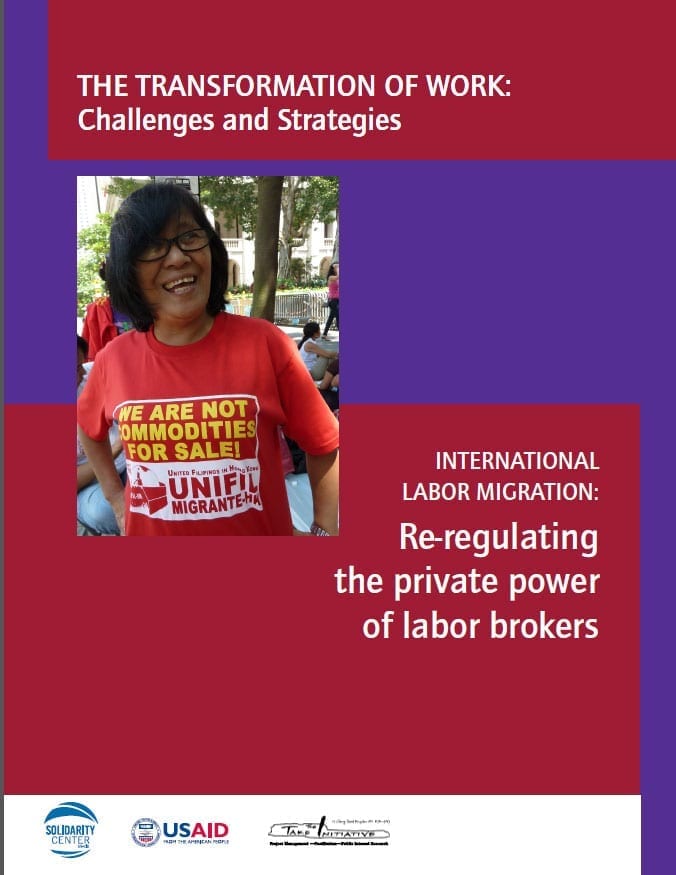
International Labor Migration: Re-regulating the Private Power of Labor Brokers (2015)
In this review of initiatives to regulate labor brokers, the authors find that state and civil society efforts to address migrant worker exploitation point to potential new policies, most effectively led by state-backed regulatory frameworks. Download here.
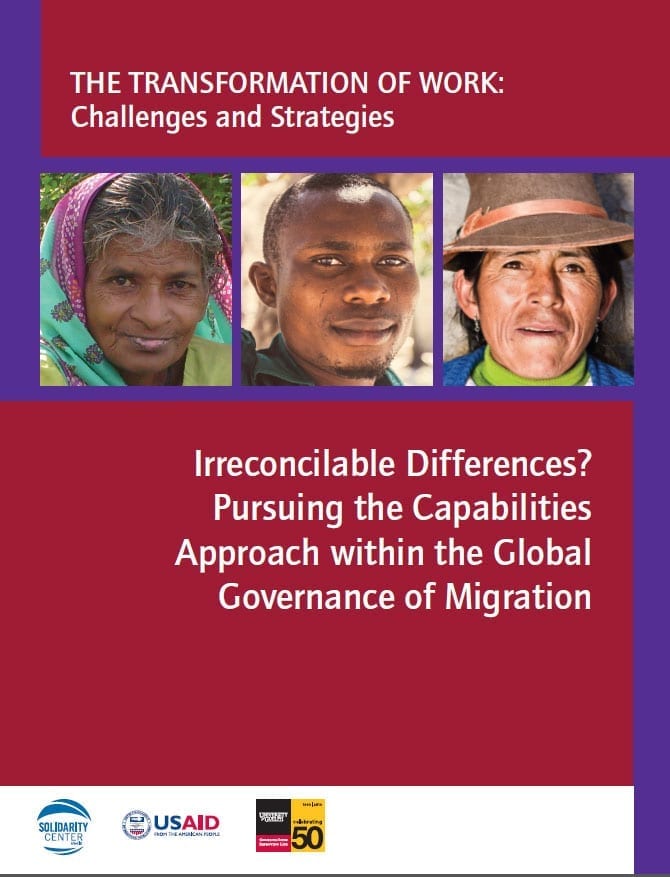
Irreconciliable Differences? Pursuing the Capabilities Approach within the Global Governance of Migration (2014)
This report on global labor migration challenges the current “triple win” paradigm in global migration policy through a worker rights lens, and argues that when applying the now-accepted "capabilities" approach, the international development community must focus on...
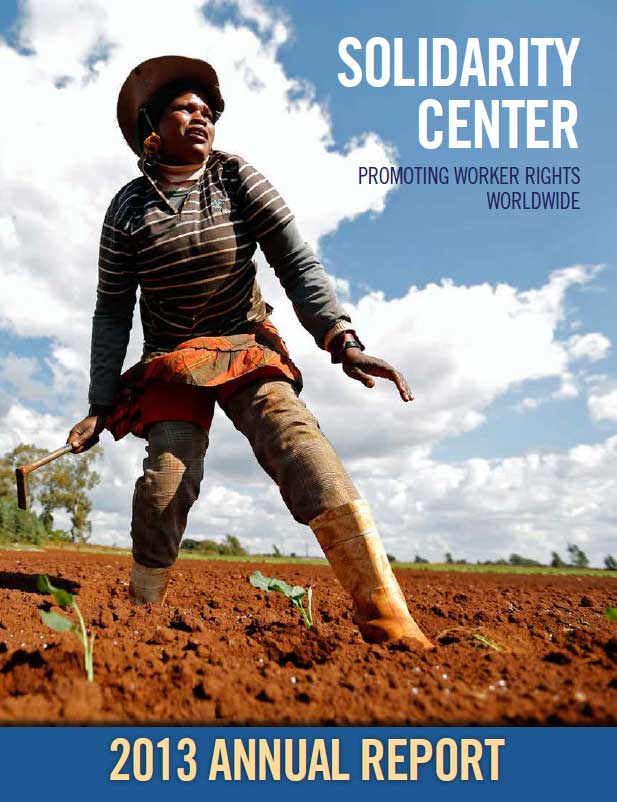
Solidarity Center 2013 Annual Report
Download here.
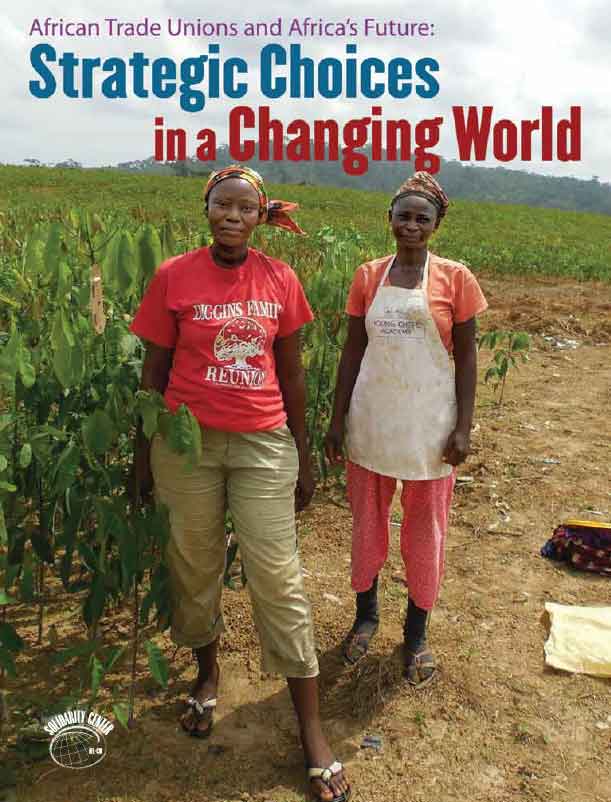
Africa Trade Unions and Africa’s Future: Strategic Choices in a Changing World (2014)
Download here.
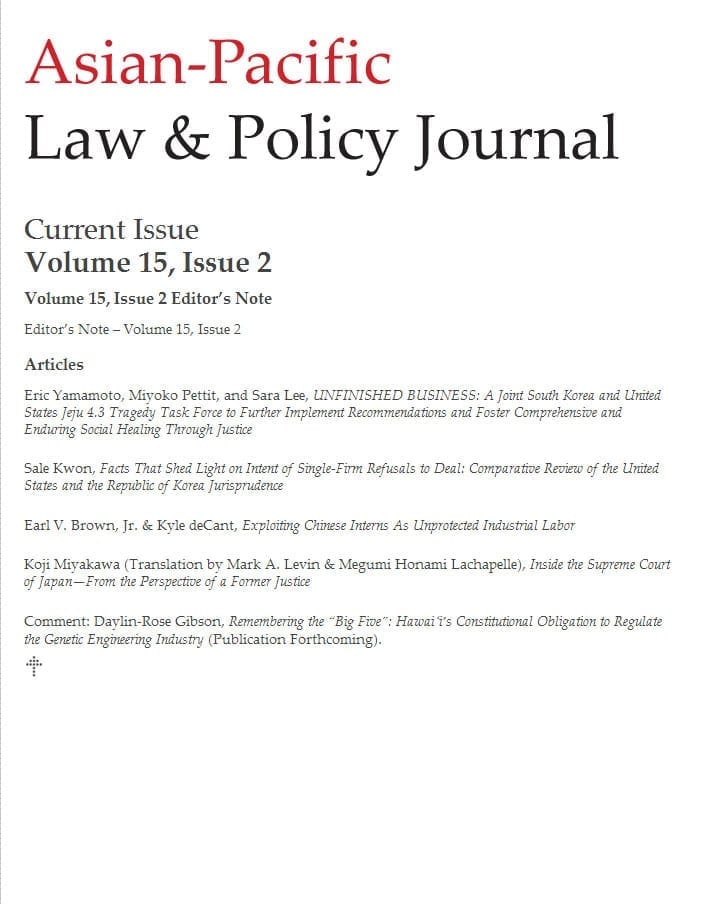
Exploiting Chinese Interns as Unprotected Industrial Labor (June 2014)
Earl V. Brown, Jr. & Kyle A. deCant Solidarity Center Labor and Employment Counsel Earl Brown and co-author Kyle deCant examine the legal issues surrounding the growing numbers of China's industrial interns, the latest class of “cheap” labor to be deployed in...
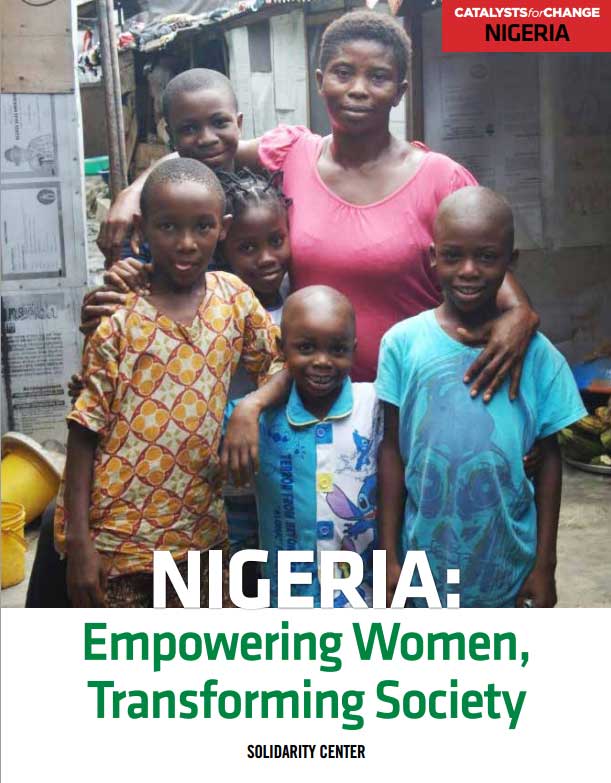
NIGERIA: Empowering Women, Transforming Society (2014)
A unique grassroots coalition based in the Niger Delta, working with unions and other local non-governmental organizations, is providing a platform for women and young people to effectively engage in the democratic political process, hold local lawmakers accountable...


